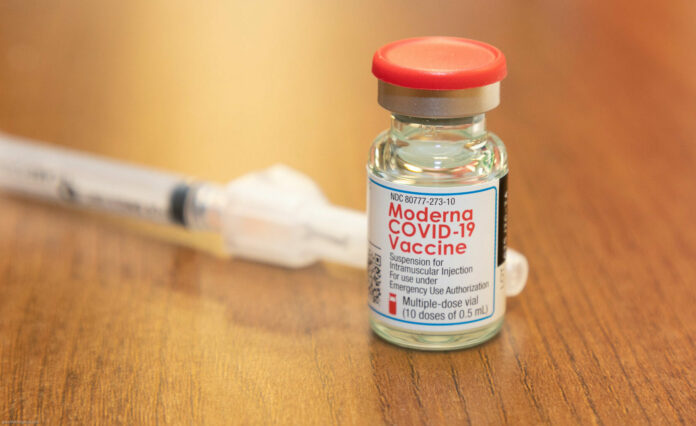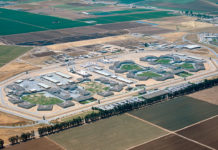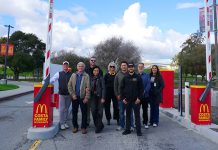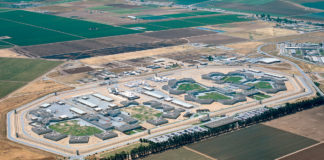MONTEREY COUNTY — More than 10,742 Covid-19 vaccines have been administered in Monterey County, out of the total of 24,150 doses of both Pfizer and Moderna vaccines allocated and delivered to the county so far.
Monterey County Health Officer Dr. Edward Moreno made the announcement during a Covid-19 vaccine informational town hall meeting last Thursday.
Moreno said exact numbers from sites are still being tracked, as data from California Immunizations and Registry shows only total numbers and not accurate site data.
The largest county supplier of administered vaccines has been Community Hospital of Monterey Peninsula with 3,000 doses, followed by Natividad with 2,980 and Salinas Valley Memorial with 2,574.
King City’s Mee Memorial had 212 total vaccinations as of last week’s totals.
Of the doses in county, Pfizer vaccines were scheduled to be 5,850 first doses and 3,900 second doses. Moderna vaccines, of which Mee Memorial’s allocation consists, are scheduled as 9,700 first doses and 4,700 second doses.
Monterey County hosted the Jan. 14 town hall to inform the public and answer questions about vaccines. The meeting was held virtually over Zoom, but that software has a cap of 500 guests, which left many without a way to view it live. The county, however, recorded the meeting to post online.
“We are very excited to be at this point in time where we are able to vaccinate individuals,” said Elsa Jimenez, director of Monterey County Health Department. “It definitely brings a light of hope at the end of the tunnel as this pandemic has been with us for over 10 months.”
Jimenez said the county received more than 200 questions.
Moreno took time to explain how the vaccine worked and discuss priority guidelines from the state in a tiered system of distributing vaccinations, beginning with front-line medical workers and eventually reaching the general public. He said a person’s body typically takes a few weeks to develop immunity to Covid-19, with the vaccines showing an effective immunity rate of 95%.
Both Moderna and Pfizer vaccines operate using a messenger RNA type.
“When it’s injected, a person will begin to produce something that’s like the spike protein that’s part of the virus, but is not the virus itself,” Moreno said. “The body thinks it is the virus, so the body starts to trigger its immune system to create these new immune cells that can fight off the actual virus should a person get exposed to it.”
Both vaccines require second doses, with Pfizer recipients having a second dose due 21 days after their first injection, and Moderna recipients due 28 days later. The second dose must be the same type.
Moreno went over who medically shouldn’t receive a vaccine.
“If you’ve had an allergic reaction to anything in the vaccine or if you have an allergic reaction to specific chemicals, like PEG and polysorbate,” Moreno said. He advised checking with a doctor in such circumstances.
Moreno also covered side effects from the vaccine, with the most common being pain where you got the shot, tiredness, headache, muscle pain and chills, but noted less than 30% of recipients reported such side effects.
As for the timeline, Monterey County is currently in Phase 1A of vaccination priority, immunizing groups in Tiers 1, 2 and 3, which generally cover medical and emergency workers along with clinic personnel.
The county has yet to move to further phases in the immunization priority schedule, and Moreno had no timeline on when that progress would take place.
Following the county’s current timeline, those next in line to receive vaccinations would be in Phase 1B of Tier 1, which includes individuals 65 and older and those with risk of exposure in education, childcare, emergency services, food and agriculture.
Beyond that is Phase 1B of Tier 2, which includes individuals at risk of exposure in transportation, logistics, industrial services, commercial services, residential services, sheltering facilities and critical manufacturing, as well as congregate settings with outbreak risk, such as the incarcerated and homeless.
Well beyond the scope of where the county is currently at is Phase 1C, which would include individuals age 50 to 54 and people below that age with underlying medical conditions and other essential workers. Much later would be Phase 2, where everyone 16 and older can get vaccinated, thus offering the vaccine to the general public.
Moving through the phases and tiers takes coordinating with community partners. Not only is the county identifying clinics that can administer vaccines, but it is also working to get their employees vaccinated ahead of time. The county is also seeking venues that can host large-scale events and thus handle the high amount of traffic coming through in what would most likely be a drive-thru format for mass vaccinations.
As far as Monterey County leaving the stay-at-home situation, Moreno said during a Jan. 13 press briefing that the state has resumed making estimates for reopening metrics, but Monterey County has not yet been cleared.
Moreno noted rather than a system of end dates for the regional stay-at-home order, which would need to be renewed, the current system is for the stay-at-home order to remain in place indefinitely until a region or county is allowed out of the order and assigned a reopening restriction tier.
“The hospital census as of Jan. 11 for Covid patients was 207,” Moreno said. “It seems like it’s hovering just above 200 now for a few days and I’m hoping that would be better than a continuing increase in cases in the hospitals.”
The current stay-at-home order was issued to Monterey County effective Dec. 17 and has not yet been lifted. Reopening would take a reduction in hospitalizations, infections and an increased estimated ICU capacity.














